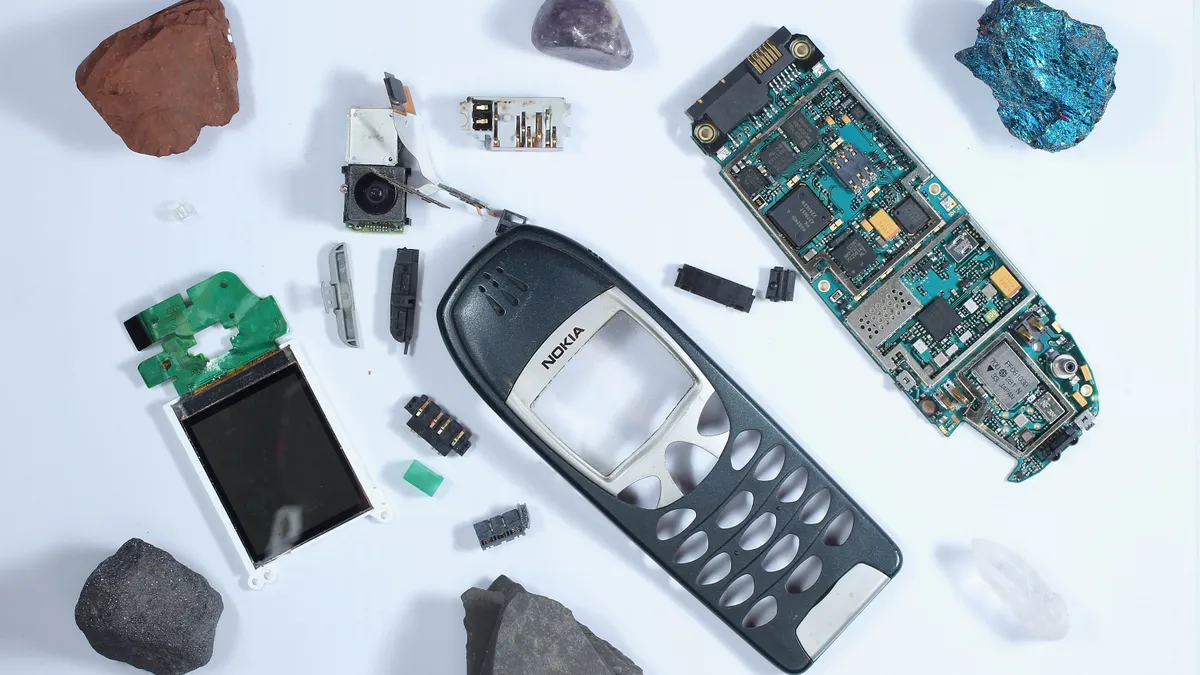Dive Brief:
- The White House announced a $35 million investment in a magnet processing plant Tuesday as part of a strategy to boost domestic production of rare earth metals.
- MP Materials, which operates the only rare earth mining and processing site of scale in North America, will use the money to construct a commercial scale processing facility for heavy rare earth magnets, which are used in electric vehicles and wind turbines.
- The company will also invest $750 million of its own money into the effort, according to a White House fact sheet. The announcement follows an executive review of vulnerabilities in the country's critical minerals supply chain.
Dive Insight:
The Biden administration is focused on boosting domestic output of lithium and other rare earth minerals to meet demand for future technology and ease the country's reliance on China.
China controls the majority of the rare earth elements market, and has made it clear in recent years it could tighten exports and use its access to critical minerals as political leverage.
Higher amounts of rare earth metals are required in the production of electric vehicles, advanced batteries, wind turbines and other renewable products. An average electric car requires six times the mineral inputs of a conventional car, while an onshore wind plant needs nine times more mineral resources than a gas-fired plant, according to a May report from the International Energy Agency.
"The fact is that we can't build a future that's 'Made in America' if we ourselves are dependent on China for the materials," President Joe Biden said at a roundtable Tuesday.
U.S. companies have made new investments in domestic supply as demand for rare earth elements is set to skyrocket in the future. Berkshire Hathaway Energy Renewables, for example, will test commercial viability of a lithium extraction process from geothermal brine. Ford and Volvo are working with Redwood Materials to collect and recycle end-of-life lithium-ion batteries to extract minerals including lithium, cobalt, nickel and graphite, according to a White House fact sheet.
The moves come as China signals it could tighten exports of strategic minerals in the future. The country drafted regulations in January 2021 to enhance control over strategic minerals such as rare earth minerals, proposing to manage supply in part through a quota system according to a report from the Congressional Research Service.
"I think China is definitely starting to realize that there is this geopolitical leverage that could be gained," Jane Nakano, senior fellow at the Center for Strategic and International Studies' energy security and climate change program, said during a October webinar hosted by the Wilson Center. "It's not to say that they will definitely use this leverage. But I think there is now a new set of things that we really need to address....And I think we're starting to run out of time."













